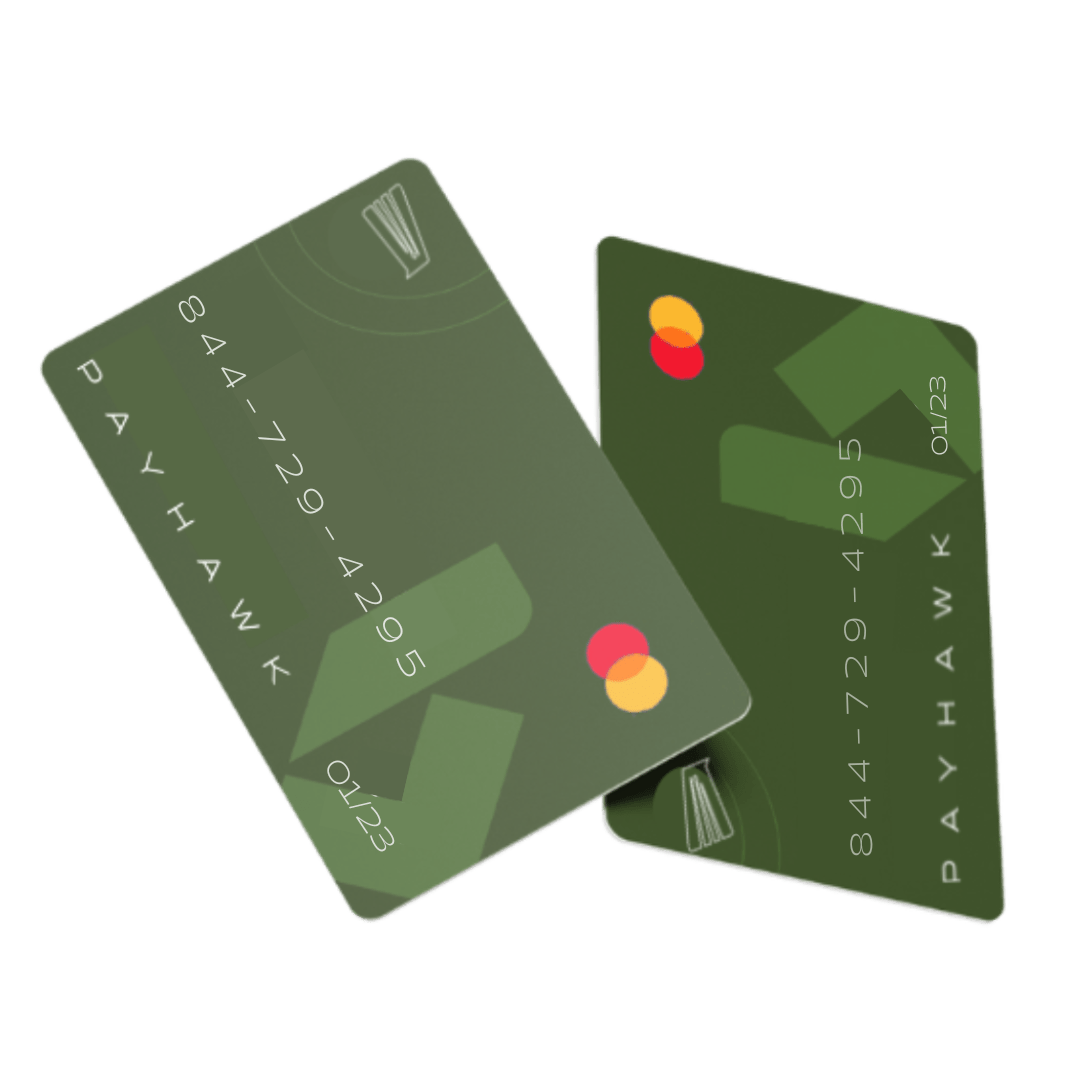The world of payment processing can be as complex as you let it be, but, one this is for certain, there are thousands of terms that merchant service providers discuss, and oftentimes, merchants are left clueless about their meanings. In this reference guide, we’ll provide you with a list of the most common terms used by merchant service providers to help you (the merchant) decipher this financial jargon.
A
Acquirer
The financial institution that processes payments on behalf of merchants.
Address Verification Service (AVS)
A fraud prevention tool that checks the billing address provided by the cardholder against the address on file with the card issuer.
Approval Code
A code provided by the payment processor to indicate that a transaction has been approved.
Authorization
The process of verifying that a transaction can be approved and funds are available for the transaction.
Authorization Hold
The practice of holding funds from the cardholder’s account to ensure the availability of funds before the completion of a transaction.
Automated Clearing House (ACH)
An electronic network that enables the transfer of funds between bank accounts.
Average Ticket Size
The average dollar amount of each transaction processed by the merchant.
Address Verification System (AVS)
A system that compares the billing address provided by the cardholder with the address on file with the card issuer to verify the authenticity of a transaction.
Annual Percentage Rate (APR)
The annual interest rate charged by a credit card issuer on outstanding balances.
B
Bank Identification Number (BIN)
The first six digits of a payment card number that identify the card issuer.
Batch
A group of transactions that are processed together at the end of a business day.
BIN Sponsorship
A service provided by payment processors that enables merchants to accept payment cards from multiple card issuers.
Bluetooth Card Reader
A wireless device that connects to a mobile device or computer to process payment card transactions.
C
Card Association
A network of financial institutions that oversee payment card transactions.
Cardholder
The person who owns the payment card being used to make a purchase.
Card-Not-Present (CNP)
A transaction where the payment card is not physically present, such as online or over the phone.
Chargeback
When a cardholder disputes a transaction and requests a refund from their bank or card issuer, resulting in the reversal of the payment.
Clearing
The process of exchanging payment information between the card issuer and the acquirer to settle a transaction.
Credit Memo
A document issued by the merchant to provide a refund or credit to the cardholder.
Credit Report
A report that details the credit history and creditworthiness of an individual or business.
Currency Conversion
The process of converting the transaction amount from one currency to another.
Customer Information Protection
The process of protecting sensitive customer information, such as payment card data, from unauthorized access or theft.
Customer Information Manager (CIM)
A service that enables merchants to securely store and manage customer payment information.
CVV/CVC
Card Verification Value (CVV) or Card Verification Code (CVC) is a three or four-digit code on the back of a credit card used to verify the card’s authenticity during online transactions.
Chargeback Reason Code
A code provided by the card issuer to indicate the reason for a chargeback.
Check Conversion
The process of converting a paper check into an electronic payment, typically at the point of sale.
Credit Limit
The maximum amount that a cardholder can charge within their credit range.
D
Debit Card
A payment card that enables the cardholder to withdraw funds from their bank account or make purchases with funds available in the account.
Decline
When a transaction is not approved due to insufficient funds, an incorrect PIN, or other issues.
Discount Rate
The percentage of each transaction that the merchant must pay the acquirer for processing the transaction.
Dual Message System
A payment processing system that sends two separate messages for each transaction, one for authorization and one for clearing and settlement.
Debit Memo
A document issued by the acquirer to recover funds from the merchant, typically due to a chargeback or fraud.
Dynamic Currency Conversion (DCC)
The process of offering the cardholder the option to pay in their own currency rather than the local currency, typically at a premium exchange rate.
E
E-commerce
The buying and selling of goods and services over the internet.
Encryption The process of encoding sensitive data to prevent unauthorized access.
Echeck
An electronic version of a paper check, used for online payments.
EMV
Europay, Mastercard, and Visa, a set of global standards for payment card security and authentication.
F
Fraud Detection
The process of identifying and preventing fraudulent transactions.
Fraud Filters
Software applications or rules that automatically detect and prevent fraudulent transactions.
G
Gateway
A software application or platform that connects the merchant’s website to the payment processor to enable online transactions.
H
High-Risk Merchant
A merchant that operates in a high-risk industry, such as adult entertainment or gambling, and is considered a greater risk for chargebacks or fraud.
I
Interchange Fee
The fee charged by the card issuer to the acquirer for processing a transaction, which is typically a percentage of the transaction amount.
Issuing Bank
The financial institution that issues payment cards to cardholders.
Keyed Entry Manually entering payment card information, rather than swiping or inserting the card.
Independent Sales Organization (ISO)
A third-party organization that contracts with payment processors to sell merchant accounts and processing services.
Interchange
The exchange of payment information and funds between the card issuer and the acquirer for a completed transaction.
Issuer Identification Number (IIN)
The first six digits of a payment card number that identify the card issuer.
K
Know Your Customer (KYC)
The process of verifying the identity and background of a customer, typically required for compliance with anti-money laundering (AML) and counter-terrorism financing (CTF) regulations.
L
Level 2 Data
Additional data fields, such as sales tax and order number, required for certain types of B2B transactions to qualify for lower interchange rates.
Level 3 Data
Detailed transaction data, such as line item descriptions and quantities, required for certain types of B2B transactions to qualify for the lowest interchange rates.
M
Merchant Account
A bank account that allows merchants to accept and process electronic payments.
Merchant Category Code (MCC)
A code that identifies the type of business for which a merchant account is used.
Merchant Discount Rate
The percentage of each transaction that the merchant must pay the acquirer for processing the transaction.
Mobile Wallet
A digital wallet that allows users to store payment card information and make purchases through a mobile device.
Merchant Agreement
A contract between the merchant and the payment processor that outlines the terms and conditions of the merchant account.
Merchant Category Code (MCC)
A four-digit code that identifies the type of business for which a merchant account is used.
Merchant Identification Number (MID)
A unique identifier assigned to a merchant account by the payment processor.
Microtransaction
A very small transaction, typically less than $1, that is processed electronically.
Mobile Payment
A payment made using a mobile device, such as a smartphone or tablet.
Multi-Currency Processing
The ability to process transactions in multiple currencies, typically used by merchants that operate globally.
N
Near Field Communication (NFC)
A technology that enables wireless communication between devices in close proximity, commonly used for contactless payment transactions.
O
Online Payment System
A system that enables merchants to accept electronic payments through a website or mobile application.
Offshore Merchant Account
A merchant account held in a foreign country, typically used by businesses that operate globally or have international customers.
P
Payment Card
A card that can be used to make electronic payments, such as a credit or debit card.
Payment Gateway
A service that enables merchants to accept electronic payments from customers through a website or mobile application.
Payment Processor
A third-party service provider that facilitates electronic payments and transfers funds between the merchant’s bank account and the card issuer.
Payment Terminal
A physical device used to process payment card transactions.
PCI DSS
Payment Card Industry Data Security Standards, a set of security standards designed to protect payment card data.
Point of Sale (POS)
The physical location where a transaction takes place, such as a retail store or restaurant.
Processor
A financial institution or third-party service provider that processes payments on behalf of merchants.
R
Refund
The process of returning funds to the cardholder’s account for a previous transaction.
Residuals
A percentage of the processing fees that are paid to the ISO or agent that signs up the merchant account.
S
Sales Draft
A document that records the details of a transaction, typically used for manual entry or signature capture.
Sales Tax
A tax on the sale of goods and services, collected by merchants and paid to the government.
Settlement
The process of transferring funds from the card issuer to the merchant’s bank account for a completed transaction.
Single Message System
A payment processing system that sends a single message for each transaction, combining the authorization and clearing/settlement information.
Statement
A record of transactions and fees associated with a merchant’s account, typically provided by the payment processor.
Stored Value Card
A payment card that stores a fixed value of funds, such as a gift card or prepaid card.
Swipe Fee
The fee charged by the acquirer for processing a payment card transaction that is swiped or inserted.
T
Terminal ID
A unique identifier for a payment terminal, used to track transactions and reconcile accounts.
Tokenization
The process of replacing sensitive payment card data with a unique identifier, or token, to enhance security and reduce the risk of fraud.
Transaction Fee
A fee charged by the payment processor for each transaction processed.
Transaction ID
A unique identifier for a transaction, used to track and reconcile transactions.
U
Underwriting
The process of assessing the risk of a merchant account and determining the appropriate fees and processing limits.
V
Virtual Terminal
A web-based application that enables merchants to manually enter payment card information for processing.
Void
The process of canceling a transaction before it is completed.
Want to Avoid the Complexities in Payment Processing? PayHawk is Here to Help!
If you’re frustrated with your current payment processing company, and want a simpler approach, or simply need a payment processing company, reach out to PayHawk today and learn how we can help you!
Already have a payment processor and want to switch to us?
Get a free statement analysis by simply filling out the form below!


